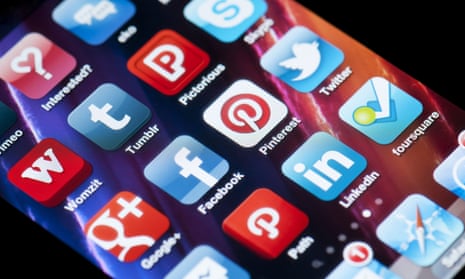From hipster pubs to food supplement brands, small businesses of all kinds use social media to win customers. But an ill-advised Facebook post, a heated response to online criticism or an overexcited use of a hashtag can quickly turn into a costly mistake. These examples show how easy it is to fail at Facebook or stumble into a Twitter trap:
1. A Facebook meltdown
A US bakery featured on Gordon Ramsay’s Kitchen Nightmares programme delivered a rookie class in what not to do when someone posts criticism about your business. Following the programme, the owners of Amy’s Baking Company Bakery Boutique + Bistro started to gather lots of negative reviews on Yelp including: “This was the worst establishment I have ever been to. Please do not dine here because this place is not ethical.” They began defending themselves on the restaurant’s Facebook page, and the posts were picked up in a thread on community website Reddit. When Amy’s owners discovered the thread the anger escalated. The business’s Facebook response – typed out in capitals – wasn’t the most dignified. Here’s a snippet: “THE YELPERS, AND NOW THE REDDITS, NEED TO BACK OFF.”
2. Hashtag Hassle
Twitter hashtags often revolve around news events, national holidays or celebrity gossip, but some appear from nowhere. You can create your own just by putting a hash symbol in front of a relevant word. Seasoned Twitter users will know that adding a hashtag can be good practice and can help to get your tweets noticed.
However, shoehorning a popular hashtag into business promotions can attract attention for the wrong reasons, as Cellecta Insulation found. When Greg Heaslip – a security guard at Arcadia – mistakenly sent a holiday request email to thousands of the company’s employees a member of staff shared the story on Twitter, along with the hashtag #GiveGregTheHoliday.
The hashtag took off and was soon trending. Cellecta Insulation gathered some unimpressed replies when it tried to tap into the hype (see below), such as: “This is a terrible attempt at agile marketing #fail #hijack.”
Greg do you need to learn about #Soundproofing before your holiday? Find out more here: http://t.co/GYHkuuY4Dn #givegregtheholiday
— Cellecta Insulation (@Cellecta_LTD) May 22, 2014
3. Alienating your local customers
If you’re launching a company, your first concern should be your success. But don’t forget that you’re the new business on the block and should be sensitive to the concerns of the community. Last year the Bonneville pub in Hackney was less than considerate in its response to neighbourhood events. When a teenager who had been stabbed sought shelter in the pub on its opening night the response from its Twitter account was far from understanding. They posted a tweet to announce they would be closed for the night with the hashtag #WelcomeToHackney.
When a neighbouring business asked what was going on, the bar replied: “Some kid got stabbed over the road and decided to run into ours. Great look for our first week.”
Many took to Twitter to express their outrage at the comments. The bar’s staff did try to make amends with apologies on its Twitter and Facebook pages. The Facebook post said: “After last night’s events, we would like to apologise profusely for the comments on Twitter, which were of course very insensitive and have now been removed.” The post continued: “Once again, we are extremely sorry for any comments that caused offence. It was a very frightening experience for all involved and bad judgement was used in the comment.”
4. Celeb endorsement overkill
A positive tweet from a celebrity can quickly launch a small firm, but
there’s such a thing as subtlety. When what seemed like the entire
cast of The Only Way is Essex started tweeting about teeth whitening brand Coco White, it raised a few wry remarks on twitter. A full feed of
celebrity endorsements retweets dampens the novelty a little, even
when the product fits the personality.
Making sure that everyday food doesn't stain my teeth by using @cocowhiteuk from http://t.co/23gC2UUgrP #LoveIt #spon pic.twitter.com/FyLGxlHjCT
— James Argent (@RealJamesArgent) July 2, 2015
5. Insulting your customers
A Manchester restaurant hit the headlines in March after insulting a hen party on Facebook. Melissa Grogan-Morgan, the party’s bride-to-be, posted a complaint on the page of 47 King Street West about the service and the group being split between two tables, among other things. Rather than offering an explanation or apology, the person responsible for the business’s Facebook called the revellers the “chaviest worst most vile people ever to grace our restaurant” and that it would be “the best thing ever” if they didn’t return. This fuelled a social media furore with the public criticising the restaurant’s comments.
However frustrating an online complaint may be, count to 10 and let the anger settle before you reply. The restaurant’s owner told the Manchester Evening News: “The entire incident is regrettable and it has been both investigated and dealt with internally.”
We asked Thomas Brown, director of strategy and marketing at The Chartered Institute of Marketing, for a few tips on how to avoid any social media mishaps:
- Ignoring a problem doesn’t mean it will go away – social media is a real-time channel and demands responsiveness.
- Failing to admit fault or taking a dispute with a customer on to social media only casts your business in a more negative light.
- Complaints on social media don’t always stay on social media – local or national press can pick up a story, worsening the reputational challenge facing the business.
- Closing down a social media account or pages doesn’t make the problem go away – it can be seen as an acknowledgment of fault or a disdain for customer feedback.
Sign up to become a member of the Guardian Small Business Network here for more advice, insight and best practice direct to your inbox.

Comments (…)
Sign in or create your Guardian account to join the discussion